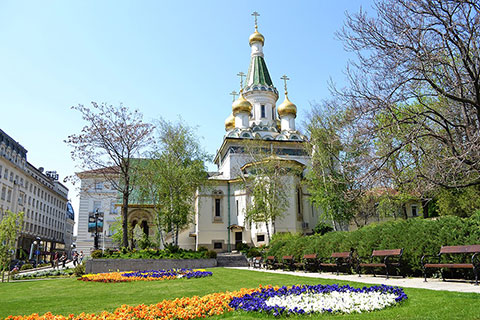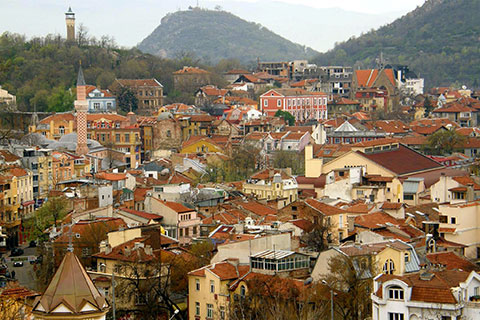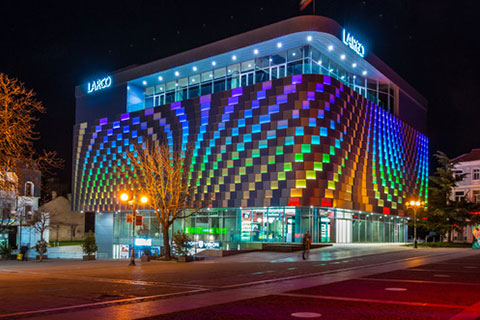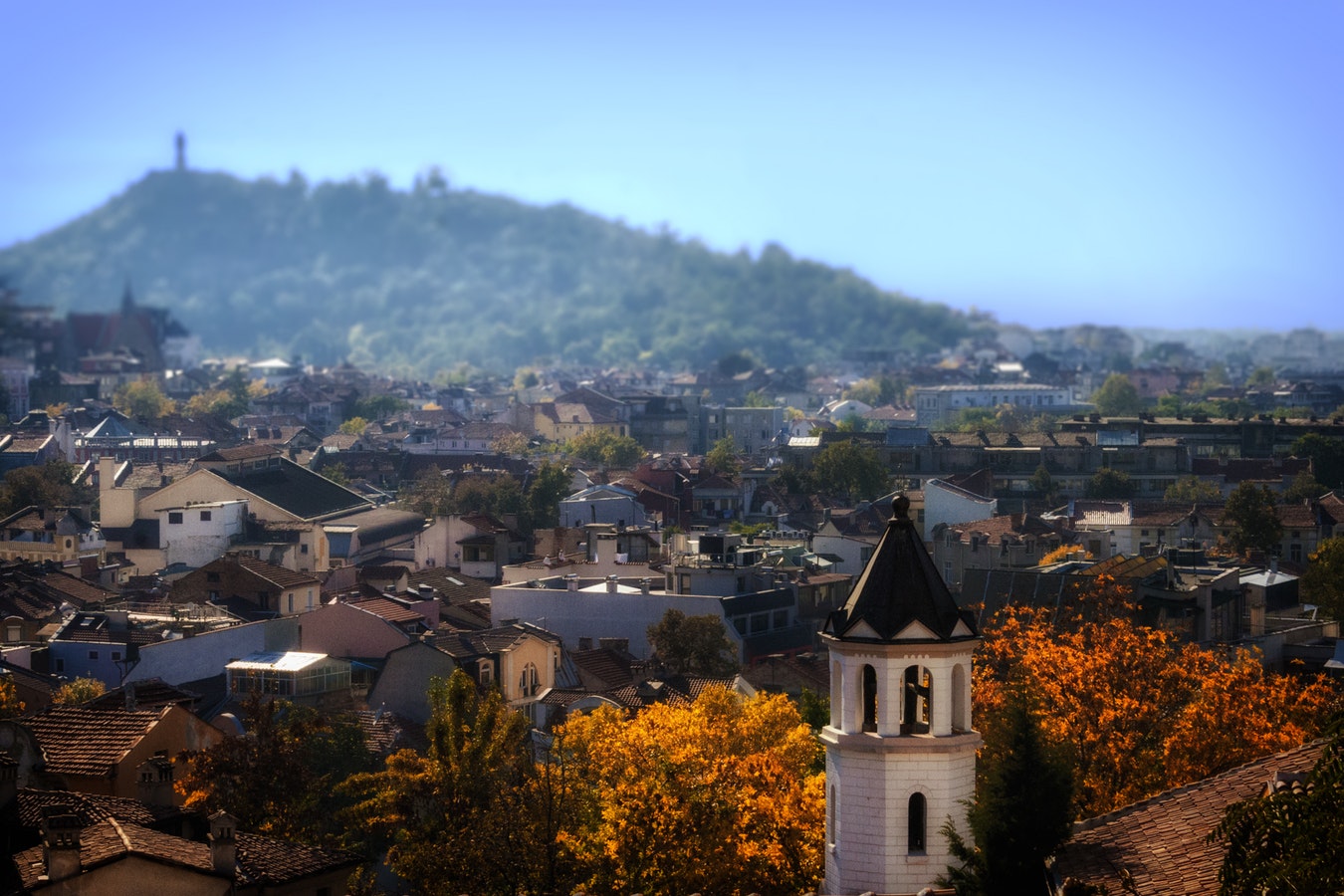
Study in Bulgaria
Last edited on 15 Feb 2026
Welcome to Bulgaria!
A small but charming country located in the Balkan Peninsula, Bulgaria is full of attractions for both international students and tourists. If you want to study in Bulgaria, you’ll find an impressive range of natural environments: from warm, sandy beaches to striking mountains and ski resorts – and it’s also a relatively low-cost international study destination.
Established in the year 681, Bulgaria is one of the oldest European countries. Its rich history has left behind many historical sites, and plenty of stories and perspectives to explore. Between 1946 and 1989 it was a single-party communist state, but since then has been governed as a democratic republic. In 2007, it became a member state of the European Union, making it even easier to travel to and around the country.
Most of Bulgaria’s international students come from neighboring nations Turkey, Greece and Macedonia, with large numbers also coming from Nigeria, Germany, Italy, Israel, UK, Ghana, South Africa and India, amongst others. International students are likely to be attracted by the country’s well-developed higher education system, internationally recognized degrees, highly reasonable tuition fees and living costs, and the safe and friendly living environment.
Higher Education System
Bulgarian universities are well known in many scientific domains such as medicine, mathematics, technical (computer sciences, engineering), chemistry, biology, linguistics etc. Some Bulgarian Universities offer English, French or German programs and deliver double degree (Bulgarian and degree from the partner universities). So, it is very common to get American, French, British, German and so on degree from Bulgarian universities.
In Bulgaria universities, the level of education is very high while entrance requirements are slightly less stringent. Students choosing to complete their medical degree studying in Bulgaria, are free to do internship years and work throughout the EU, and many other countries as well.
International students are attracted by good high education level, degree recognized in all over the world, large game of study opportunity (English, French, Germany and Bulgarian program, a lot of fields of studies, credit transfer, etc. ) very reasonable tuition fees and living costs, safe and friendly living environment etc.
Higher education in Bulgaria follows the Bologna process, which ensures compatibility with the qualifications on offer across European universities. This means that higher education follows the usual stages of bachelor’s, master’s, and doctorate. Undergraduate degrees take four years to complete, while master’s programs take one or two years (or five years if you directly after graduating from high school).
Student Cities in Bulgaria
Sofia

Bulgaria’s capital and largest city, Sofia is also the 15th largest city in the European Union, with a population of 1.2 million people. A major political, economic and cultural center, it is located in the west of Bulgaria, on the lower slopes of Mount Vitosha. Its history includes settlements of Thracian tribes and Romans, and it was once the favorite city of Emperor Constantine the Great, who called it his “Rome”.
Today, you can still see the remains of Roman buildings in the center of the city. But alongside its well-preserved heritage, Sofia is a modern European city with a laid-back atmosphere and lots to do. The capital even has an entire district dedicated to students, known as “Student Town”, which has over 40,000 residents. Here you will find the student halls of all the city’s universities, as well as libraries, shops, clubs, bars and parks.
Sofia is home to many of the best-known Bulgarian universities, including Sofia University St. Kliment Ohridski, which features in the QS World University Rankings, and an international branch of the UK’s University of Sheffield.
Plovdiv

The country’s second-largest city, Plovdiv has a population of about 342,000, and a lively cultural and nightlife scene. It is another of Europe’s oldest settlements (older than Rome, Athens, Carthage or Constantinople and almost a contemporary of Troy), built upon layers of older towns and cultures. The historic old town district contains remains from Bulgaria’s National Revival period (18-19th century) and is basically an open-air museum situated on three hills, known in Roman times as Trimontium. The old town also contains a well-preserved ancient Roman theater, which is still used for open-air performances. Plovdiv is home to one of Bulgaria’s most notable universities – the Plovdiv University "Paisii Hilendarski".
Veliko Tarnovo
Among Bulgaria’s oldest settlements, Veliko Tarnovo has a history dating back more than 5,000 years, and was the capital of Bulgaria for several centuries, before the Ottoman dominion. Veliko Tarnovo was known as the most unconquerable Bulgarian fortress, as well as a major cultural and intellectual center. Today, the most significant monument in Veliko Tarnovo is the well-preserved medieval fortress Tsarevets, situated on a peak above the city and surrounded on three sides by the river Yantra. The fortress and Veliko Tarnovo’s old town district are must-sees for all those with an interest in the medieval period. The city is home to one of the most prestigious Bulgarian universities, the St. Cyril and St. Methodius University of Veliko Tarnovo.
Blagoevgrad

A small, charming city in the southern part of the country, Blagoevgrad is situated at the foot of the Rila and Pirin Mountains, the highest and most beautiful ranges in Bulgaria. One of the most famous local tourist attractions is the Rila Monastery, founded in the 10th century AD, which is only half an hour away from Blagoevgrad. The monastery is among Bulgaria’s landmark attractions; tourists from around the world come to admire this old Christian sanctuary, many remarking that there is something magical about the place.
The city itself is quite small, but has a vibrant cultural life. It is home to two universities, one of which is the English-medium American University in Bulgaria. Students make up a significant segment of the local population, and many are international, so if you choose to study here you certainly won’t feel alone.
Application, Fees and Visas in Bulgaria
Applying to universities in Bulgaria
You should apply directly to your chosen Bulgarian university. Most Bulgarian universities require international applicants to provide copies of relevant documents, which may include a diploma or certificate proving successful completion of the previous stage of education, a medical certificate, a valid passport or ID, and an English language test result (if studying in English).
Some universities may ask you to sit an exam to test your Bulgarian or English language skills (depending on the language you intend to study in). If you fail this exam, you may have the option to enroll in a year-long preparatory course studying either Bulgarian or English.
The deadline for applying to universities in Bulgaria is usually 30 September in the year before the course commences for English-taught courses, or 15 September for courses taught in Bulgarian. However, this may slightly vary from institution to institution.
Visas to study in Bulgaria
European Union citizens do not need a visa in order to study in Bulgaria. All that is required is a valid passport or ID and you’re good to go! However, if you’re staying longer than three months for your studies, you’ll need to register with the police and present proof of your student status. You’ll then receive a national identity card and temporary residence lasting up to five years.
If you come from a non-EU country, you will need to apply for a Bulgarian student visa (D-type), which you can apply for either online or in person at your nearest Bulgarian embassy.
The documents you need may vary depending on your nationality, so for full details you should check with your Bulgarian embassy. However, the usual documents needed are:
- Acceptance letter from a Bulgarian university
- Photocopy of your passport, which should be valid for at least one year after your intended period of study ends
- Valid health insurance
- Bank document showing that you’ve paid the necessary upfront payment on tuition fees (typically half of an annual fee)
- A recent passport-sized color photograph, with a white background
- Photocopies of any previous visas you’ve had for travel to Bulgaria, the US or the UK, if applicable.
After you arrive in Bulgaria, you must apply for a residency permit, which costs BGN 500 (~US$285), is valid for one year, and is renewable every year during your studies. An application for a residency permit can only be submitted after you have fully enrolled at university.
Fees and funding
Tuition fees are relatively low in Bulgaria. StudyinBulgaria.com estimates average fees of €2,900-8,000, with medical degrees at the higher end of this spectrum. A one-year preparatory course in English or Bulgarian costs around €2,500 (~US$2780).
EU/EEA and Swiss students of all study levels are eligible to apply for the Bulgarian tuition fee loan, and Bulgarian universities may offer scholarships to help overseas students fund their studies.
As mentioned earlier, living costs are cheap in Bulgaria, especially in comparison to other study destinations. Your living costs, including accommodation, transport, food and other expenses, are likely to amount to about US$7,200 per year (estimate based on the average monthly costs in euros here) – though you may wish to budget more depending on your lifestyle, spending habits, and city. Rent will be your biggest monthly expenditure – most students live on campus but if you prefer to rent privately, this will cost at least €100 a month (~US$110).
Fast fact
- Situated in the Balkan Peninsula
- Borders with Greece, Turkey, Macedonia, Serbia, Romania and the Black Sea
- Capital city is Sofia
- Population is 7.3 million
- Official language is Bulgarian and the alphabet is Cyrillic
- The Cyrillic script was developed during the 9th century
- Traditional religion is Eastern Orthodox Christianity
- Member state of the UN, NATO and the EU – and currently in the process of joining the Schengen Area
- National currency is Bulgarian lev (BGN)
- Founded as a national state in 681 AD
- Unitary parliamentary republic
- Part of the Ottoman Empire for five centuries until 1878
- In 1946 after a referendum the monarchy was abolished and Bulgaria became a communist state.
- In 1989 the communist regime fell and Bulgaria became a democracy.
- Almost 35% of the land consists of forests, where some of the oldest trees in the world grow.
- Active member of CERN, with almost 200 participating scientists
- Home to nine UNESCO World Heritage Sites
- Until 1989, Bulgaria was the world's second-largest wine exporter.
- The inventor of the first electronic digital computer, John Atanasoff, was of Bulgarian origin.
- A Bulgarian folk song is part of the Voyager Golden Record selection of music included in the Voyager spacecraft launched in 1977.





